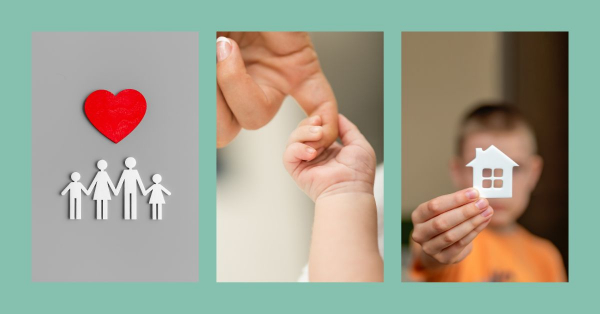Pre-Adoption Classes
Each state has a requirement that you attend pre-adoption classes. The type of class that you need to attend depends upon the state you live in. The different classes are outlined below. You will need to consult the section for your state to determine which class you need to take.
PATH
“Parents as Tender Healers” (PATH) is a video-based curriculum to help prospective resource parents (parents who are supporting children in the child-welfare system) decide whether providing foster, adoptive, or kinship care to children is appropriate for them. The class is offered in eight three-hour sessions.
Sessions address:
– How resource families differ from families formed by birth, and how and why children in the child welfare system develop “survival behaviors.”
– The different roles of birth parent, legal parent, and caregiving parent.
– The characteristics of successful resource families.
– The types of abuse and neglect experienced by children in the child welfare system.
– Survival behaviors developed by children from the system and the emotional issues underlying these behaviors.
– The importance of emotional attachment and the impact of separation and trauma on children.
– Identifying existing and future family strengths and supports, and understanding issues faced by children in transition.
– Tools and techniques to help children in the child welfare system develop attachments and disciplinary techniques that work well with children who have experienced trauma.
– Understanding the normal, predicable periods of crisis for resource families, as well as strengths and resources for dealing with crisis.
– The final session includes materials for a panel discussion with experienced resource parents and children.
MAPP
“Model Approach to Partnerships in Parenting” (MAPP) provides a structured format through which prospective foster (and adoptive) parents can be selected and prepared to work with child welfare agencies as team members in helping troubled children and teens. It provides these parents with information about children’s feelings regarding their birth families, the realities of separation and attachment, the impact of introducing a new child into one’s own family, and how to parent children who have been sexually abused.
MAPP is designed to provide a foundation for foster parents as they move through this
selection process to the placement of children in their homes and, hopefully, placement stability.
MEETING 1
– Welcome to the Group, Preparation and Selection Program.
– Acquaints leaders and participants with the Group Preparation and Selection Program and each other.
– Explanation of the process; discussion of foster care, adoption, and permanency planning; outline and discussion of the roles and responsibilities of foster parenting and adoptive parenting; communication skills building.
MEETING 2
– Where MAPP Leads: A Foster Care & Adoption Experience.
– Overview of a foster care and adoption experience from the perspectives of clients (children and parents), foster parents, adoptive parents, and child welfare workers.
– Demonstrates the stresses and losses which can lead to foster care placement or adoption; what happens if a foster home placement or adoption does not work out; how families are reunited; how children are moved into adoption; and how some youth in foster care move into independent living.
PRIDE
Parent Resources for Information, Development, and Education. The curriculum is based on developing five core competencies that strengthen families, particularly families fostering or adopting children from the child welfare system.
– Protecting and nurturing children.
– Meeting children’s developmental and emotional needs.
– Supporting children’s relationships with their birth families.
– Connecting children to safe, nurturing relationships intended to last a lifetime, permanency.
– Working as a member of a professional team.
Are you considering placing a child for adoption? Not sure what to do next? First, know that you are not alone. Visit Adoption.org or call 1-800-ADOPT-98 to speak to one of our Options Counselors to get compassionate, nonjudgmental support. We are here to assist you in any way we can.







